September 30th 2025, 6pm (WebEx)
Speaker: Anthony R. Artino, Jr., PhD. Professor & Associate Dean for Educational Research. Co-Director, Academy of Education Scholars, School of Medicine & Health Sciences, The George Washington University, USA.
Discussant: Jumana Antoun, MD, PhD, Msc. Professor of Family Medicine. American University of Beirut Faculty of Medicine.
Format: Skill-building presentation (60 min)
Objectives: At the end of this lecture, attendees will be able to: 1. Recognize the elements of a survey 2. Describe how cognitive processes and motivation guide the way people understand and respond to survey questions 3. Learn how to identify poorly written survey items and other design pitfalls 4. State several design principles 5. Discuss expert reviews and cognitive interviews
Associated Clinician-Educator Milestone(s): Educational Scholarship 2: Research Design and Implementation; Educational Theory and Practice 8: Science of Learning
Clinical Reasoning - Navigating Clinical Care with a Trainee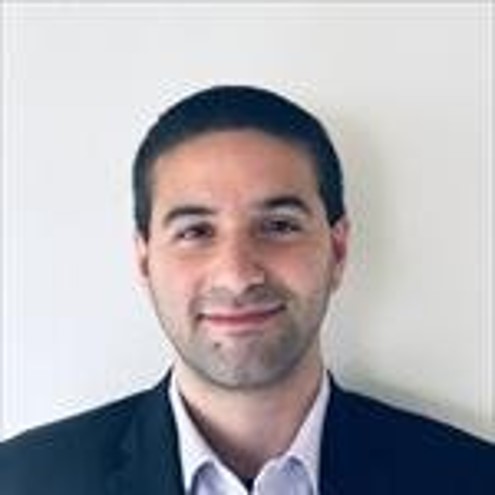
October 21st 2025, 6pm (WebEx)
Speaker: Rabih Geha, MD. Associate Professor of Medicine. Director of Education, Emergency Department, University of California San Francisco. Co-Founder, The Clinical Problem Solvers, USA
Co-speaker: Youssef Saklawi, MD. Assistant
Professor of Medicine. Emory University School of Medicine, USA
Discussant: Afif Mufarrij, MD. Associate Professor of Emergency Medicine. Program Director. American University of Beirut Faculty of Medicine
Format: Skill-building presentation (90 min)
Objectives: At the end of the session, attendees will be able to: 1. Showcase the principles of clinical reasoning by virtue of a clinical unknown case.
2. Demonstrate the attending-resident dynamic and principles for effective teaching of clinical
reasoning
3. Perform a cognitive autopsy of a clinical unknown case
Associated Clinician-Educator Milestone(s): Educational Theory and Practice 1: Teaching and Facilitating Learning; Learner Assessment 3: Assessment Methods and Tools
Improving the Quality of Feedback in Medical Education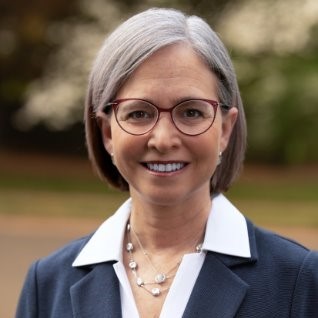
October 28th 2025, 6pm (WebEx)
Speaker: Jennifer Kogan, MD. Vice Dean for Undergraduate Medical Education. Professor, Perelman School of Medicine, University of Pennsylvania, USA.
Discussant: Fadi Haddad, MD. Professor of Surgery. American University of Beirut Faculty of Medicine.
Format: Skill-building workshop (90 min)
Objectives: At the end of this session, participants will be able to: 1. Describe approaches for setting the stage for feedback 2. List characteristics of effective feedback 3. Explain strategies for giving feedback in challenging situations
Associated Clinician-Educator Milestone(s): Feedback 1: Providing Actionable Feedback; Educational Theory and Practice 1: Teaching and Facilitating Learning
Best Practices in Constructing Multiple Mini-Interviews as an Admissions OSCE for Residency Programs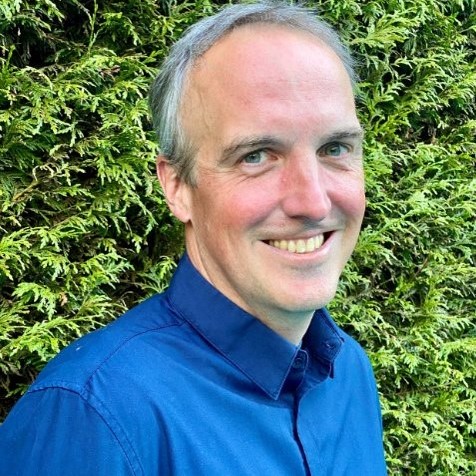
November 18th 2025, 6pm (WebEx)
Speaker: Kevin Eva, PhD, Hon. FAcadMEd, FSACME. Professor & Director, Education Research and Scholarship, Department of Medicine, University of British Columbia. Associate Director & Scientist, Centre for Health Education Scholarship. Editor-in-Chief, Medical Education, Canada
Discussant: Sahar Siddik-Sayyid, MD. Professor of Anesthesiology. American University of Beirut Faculty of Medicine
Format: Skill-building workshop (60 min)
Objectives: At the end of this session, attendees will be able to: 1. Discuss the evidence base pertaining to the use of Multiple Mini-Interviews in selecting trainees 2. Understand best practices for designing MMIs
Associated Clinician-Educator Milestone(s): Learner Assessment 3: Assessment Methods and Tools; Educational Theory and Practice 1: Teaching and Facilitating Learning
The Other Side of Leadership: Understanding Followership in Academic Medicine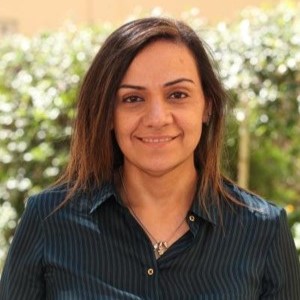
November 25th 2025, 6pm (WebEx)
Speaker: Zeina Kanafani, MD . Tenured Professor of Medicine, Division of Infectious Diseases, Hospital Epidemiologist, Department of Internal Medicine. Associate Dean for Medical Student Affairs, Faculty of Medicine, American University of Beirut, Lebanon
Discussant: Nadine Yazbeck, MD. Associate Professor of Pediatrics. American University of Beirut Faculty of Medicine
Format: Skill-building presentation (60 min)
Objectives: At the end of the session, attendees will be able to: 1. Define the concept of followership and explain its relevance within healthcare teams and academic medicine 2. Differentiate among followership styles using established models, recognizing how these styles impact team dynamics and leadership effectiveness 3. Apply principles of effective followership to enhance collaboration, accountability, and leadership development in both medical education and clinical practice
Associated Clinician-Educator Milestone(s): Administration and Leadership 1: Leadership Skills; Diversity, Equity, and Inclusion 2: Promoting an Inclusive Learning Environment
AI Tools for Clinicians-Educators: Let's Get Started!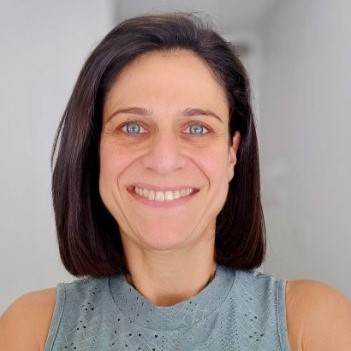
December 9th 2025, 6pm (WebEx)
Speaker: Jumana Antoun, MD, PhD, CPHIMS. Professor of Clinical Specialty, Department of Family Medicine, Faculty of Medicine, American University of Beirut, Lebanon
Discussant: TBA
Format: Skill-building presentation (90 min)
Objectives: At the end of the session, attendees will be able to: 1. Identify and explain categories of AI tools relevant to clinical practice and medical education, including their benefits and limitations 2. Apply and analyze selected AI platforms to generate clinical and educational outputs, and critique them for accuracy, bias, and appropriateness
Associated Clinician-Educator Milestone(s): Educational Theory and Practice 1: Teaching and Facilitating Learning; Learner Assessment 3: Assessment Methods and Tools
Qualitative Research in Surgical Education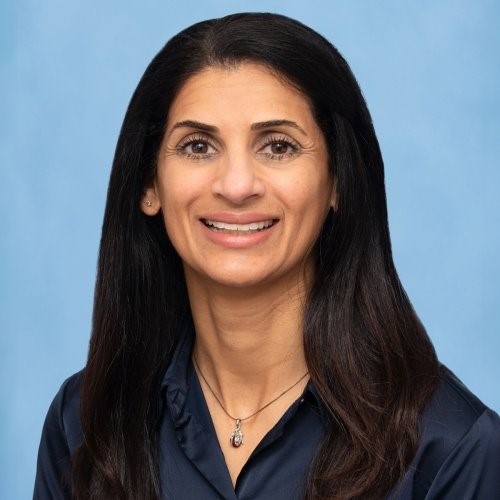
December 16th 2025, 6pm (WebEx)
Speaker: Gurjit Sandhu, PhD. Professor, Departments of Surgery & Learning Health Sciences. Director, Center for Surgical Training and Research. Director, ASE Surgical Education Research Fellowship. UM-Trained Executive Coach, University of Michigan Health System, USA
Discussant: Fatima Msheik, PhD. Clinical Instructor of Anesthesiology. American University of Beirut Faculty of Medicine
Format: Skill-building workshop (90 min)
Objectives: At the end of the session, attendees will be able to: 1. Explore uses of qualitative research in health sciences
2. Identify qualitative research methods, including observations, interviewing, and focus groups
3. Discuss criteria for judging quality and credibility of qualitative research
Associated Clinician-Educator Milestone(s): Educational Scholarship 2: Research Design and Implementation; Educational Theory and Practice 8: Science of Learning
How to Coach and Develop Master Adaptive Learners in GME?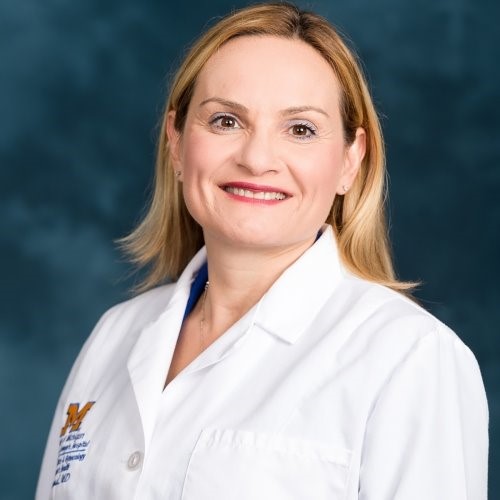
January 20th 2026, 6pm (WebEx)
Speaker: Maya Hammoud, MD, MBA. Professor & Chief, Division of Women's Health. Director, Program on Research, Innovation, and Development in Education. Professor of Obstetrics & Gynecology and Learning Health Sciences, University of Michigan Medical School, USA
Discussant: TBA
Format: Skill-building presentation (60 min)
Objectives: TBA.
Associated Clinician-Educator Milestone(s): Coaching and Mentoring 1: Coaching and Advising Skills; Educational Theory and Practice 1: Teaching and Facilitating Learning
Professional Identity Formation of our Learners: Our Role as Educators
January 27th 2026, 6pm (WebEx)
Speaker: Mona Osman, MD, MEd, MBA. Assistant Professor of Family Medicine, Department of Family Medicine. Medical Director, Family Medicine Clinics. Director, University Health Services. Director, Fellowship in Primary Care Sports Medicine, Faculty of Medicine, American University of Beirut, Lebanon
Format: Skill-building presentation (60 min)
Discussant: Alain Abi Ghanem, MD. Assistant Professor of Diagnostic Radiology. American University of Beirut Faculty of Medicine
Objectives: TBA
Associated Clinician-Educator Milestone(s): Educational Theory and Practice 1: Teaching and Facilitating Learning; Diversity, Equity, and Inclusion 2: Promoting an Inclusive Learning Environment
Creating a Trusted Data Driven Approach to Addressing Learner Mistreatment
February 17th 2026, 6pm (WebEx)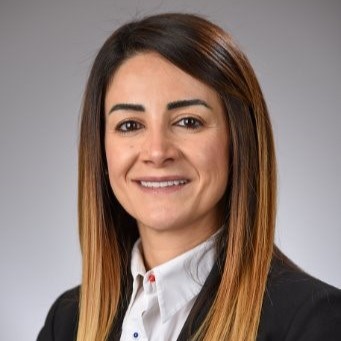
Speaker: Zeina M. Nabhan, MD, FAAP. Associate Dean, Graduate Medical Education. Professor of Clinical Pediatrics, Division of Pediatric Endocrinology/Diabetology, Indiana University School of Medicine, USA
Discussant: Marianne Majdalani, MD. Professor of Pediatrics. American University of Beirut Faculty of Medicine
Format: Skill-building presentation (60 min)
Objectives: At the end of this session, attendees will be able to
1. Recognize mistreatment behaviors in the clinical learning environment
2. Describe the mistreatment prevention and response system at the largest medical school in the U.S.
3. Assess ways to improve and sustain the mistreatment system at their home institution
Associated Clinician-Educator Milestone(s): Diversity, Equity, and Inclusion 2: Promoting an Inclusive Learning Environment; Administration and Leadership 3: Addressing Learning Environment Challenges
How to Develop Mini-MedEd Scholarship Products
February 24th 2026, 6pm (WebEx)
Speaker: Alice Fornari, EdD, FAMEE, RDN, HEC-C, ACC/ICF. Professor of Science Education, Occupational Health & Family Medicine. Associate Dean, Educational Skills Development, Zucker School of Medicine at Hofstra/Northwell. Vice President, Faculty Development, Northwell Health, USA
Co-Speaker: Melissa Affa, Project Manager, Office of Academic Affairs, Northwell Health, Creative Instructional Designer, JiTT Infographics App
Discussant: Nathalie Khoueiry-Zgheib, MD. Professor of Pharmacology. American University of Beirut Faculty of Medicine
Format: Skill-building presentation (60 min)
Objectives: At the end of this session, attendees will be able to: 1. Define mini-scholarship 2. Outline a process to develop mini-scholarship 3. Investigate how to disseminate mini scholarship
Associated Clinician-Educator Milestone(s): Educational Scholarship 3: Dissemination of Scholarly Work; Educational Theory and Practice 8: Science of Learning
Do not Skip the Framework! From Ideas to Rigorous Studies, Theory Makes the Difference
March 24th 2026, 6pm (WebEx)
Speaker: Fatima Msheik El-Khoury, PhD, MBA, MEd(c). Clinical Instructor, Department of Anesthesiology and Pain Medicine. Educational Development Coordinator, Faculty of Medicine, American University of Beirut, Lebanon
Discussant: Firas Kreidieh, MD. Clinical Instructor of Medicine. American University of Beirut Faculty of Medicine
Format: Skill-building workshop (90 min)
Objectives: At the end of this session, attendees will be able to: 1. Define and distinguish between theory, theoretical framework, and conceptual framework in health professions education research, and explain their uses and importance in guiding research design 2. Identify and justify the selection of theories that are most relevant to their own research questions and contexts 3. Apply either a theoretical framework or a conceptual framework to a proposed medical education research project
Associated Clinician-Educator Milestone(s): Educational Scholarship 2: Research Design and Implementation; Educational Theory and Practice 8: Science of Learning
Navigating Emotions and Learning
March 31st 2026, 6pm (WebEx)
Speaker: Laura Hopson, MD, MEd. Josiah Macy Jr Distinguished Educator Professor. Associate Chair of Education. Clinical Professor, Department of Emergency Medicine, University of Michigan, USA
Discussant: Beatrice Khater, MD. Assistant Professor of Family Medicine. American University of Beirut Faculty of Medicine
Format: TBA
Objectives: TBA
Associated Clinician-Educator Milestone(s): Educational Theory and Practice 8: Science of Learning; Feedback 1: Providing Actionable Feedback
Leveraging Effective Feedback Conversations in Clinical Settings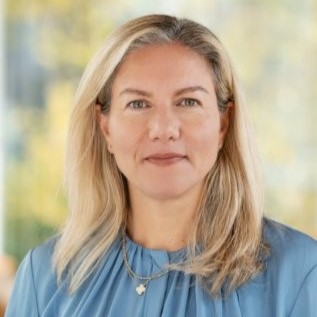
April 21st 2026, 6pm (WebEx)
Speaker: Rola Ajjawi, PhD. Scientist, Centre for Health Education Scholarship. Professor, Department of Surgery, Faculty of Medicine, University of British Columbia, Canada
Discussant: TBA
Format: Skill-building presentation (60 min)
Objectives: At the end of this session, attendees will be able to: 1. Identify the components of a strong educational alliance 2. Describe strategies for promoting a productive feedback culture
Associated Clinician-Educator Milestone(s): Feedback 1: Providing Actionable Feedback; Educational Theory and Practice 1: Teaching and Facilitating Learning
Artificial Intelligence in Health Professions Education Assessment
April 28th 2026, 6pm (WebEx)
Speaker: Ken Masters, PhD, FDE. Associate Professor of Medical Informatics, Medical Education & Informatics Department, College of Medicine & Health Sciences, Sultan Qaboos University, Oman
Discussant: Rami Mahfouz, MD. Professor of Laboratory Medicine. American University of Beirut Faculty of Medicine
Format: Skill-building presentation (60 min)
Objectives: At the end of the session, participants will be able to: 1. Identify some of the potential assessment opportunities introduced by AI 2. Identify some of the potential assessment problems introduced by AI 3. Use some basic AI tools and strategies to assist in creating assessments
Associated Clinician-Educator Milestone(s): Learner Assessment 3: Assessment Methods and Tools; Educational Theory and Practice 1: Teaching and Facilitating Learning
Interactive Teaching Techniques for Classroom and Virtual Environments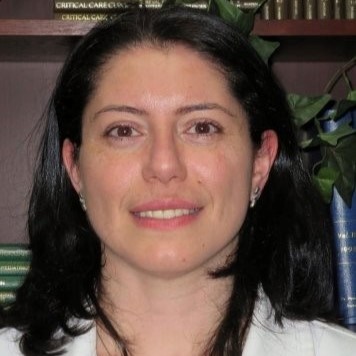
May 19th 2026, 6pm (WebEx)
Speaker: Katia Al Taoum, MD. Associate Program Director & Assistant Professor of Pediatrics and Pediatric Pulmonology, Department of Pediatrics and Adolescent Medicine, American University of Beirut Faculty of Medicine and Medical Center, Lebanon
Discussant: TBA
Format: Skill-building presentation (60 min)
Objectives: At the end of this session, attendees will be able to: 1. explain the importance of enhancing learner engagement using interactive techniques in teaching methods 2. Identify examples of easy-to-implement strategies for integrating technology into medical education 3. Learn about methods that can be integrated, recognize common barriers to integration, and describe ways to overcome these barriers by adapting the integration process
Associated Clinician-Educator Milestone(s): Educational Theory and Practice 1: Teaching and Facilitating Learning; Educational Theory and Practice 8: Science of Learning
Measuring the Mind at Work: Strategies for Assessing Clinical Reasoning
May 26th 2026, 6pm (WebEx)
Speaker: Michelle Daniel, MD, MHPE, FACEP. Vice Dean for Medical Education. Professor of Clinical Emergency Medicine, University of California, San Diego School of Medicine, USA
Discussant: Marie Aouad-Maroun, MD. Professor and Chair of Anesthesiology. American University of Beirut Faculty of Medicine
Format: Skill-building presentation (60 min)
Objectives: TBA
Associated Clinician-Educator Milestone(s): Learner Assessment 3: Assessment Methods and Tools; Educational Theory and Practice 1: Teaching and Facilitating Learning
Remediation in Medical Education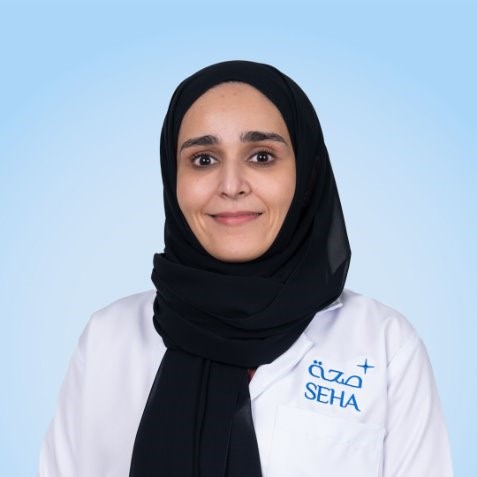
June 23rd 2026, 6pm (WebEx)
Speaker: Thana Harhara, MBBS, FRCPC, MSc. Chair, Department of Medicine, Sheikh Khalifa Medical City, UAE
Discussant: TBA
Format: TBA
Objectives: TBA
Associated Clinician-Educator Milestone(s): Remediation 1: Recognition and Management of Learners in Difficulty; Learner Assessment 3: Assessment Methods and Tools